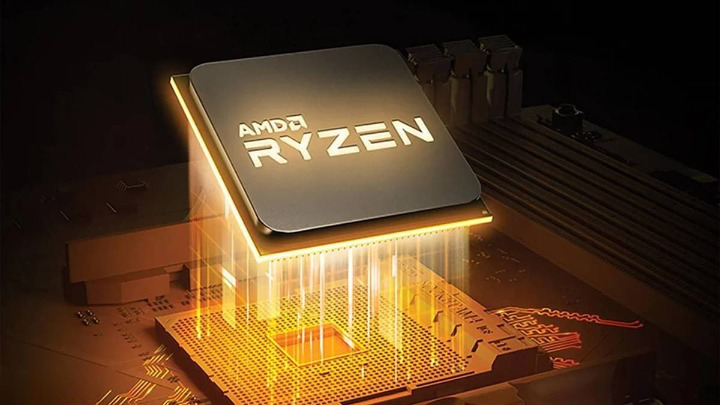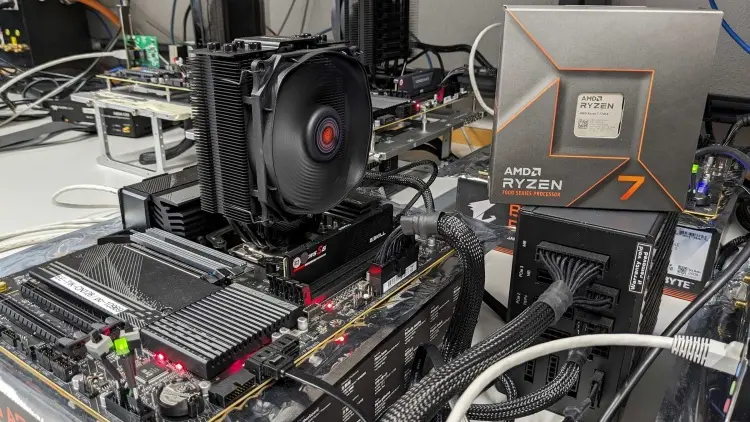
Security researchers from ETH Zürich have identified a significant vulnerability in AMD’s Zen 3 and Zen 4 architecture, impacting a wide range of CPUs, including those found in laptops, desktops, and data centers. AMD has promptly acknowledged this issue and has outlined their plans to address it. Let’s delve into what exactly the ‘Inception‘ vulnerability is, its implications for AMD processors, and whether you should be concerned about potential data leaks.
Understanding the AMD Inception Vulnerability
The Inception vulnerability is classified as a side-channel attack. Researchers have uncovered that the mitigation measures put in place by AMD to prevent attackers from tampering with microarchitectural buffers are not as effective as intended. This holds true despite the presence of both hardware and software mitigations, which aim to eliminate malicious data within an information container, such as a file – a process known as data sanitization. Notably, this attack bears similarities to the “‘Spectre‘ vulnerabilities that were previously identified in Intel CPUs“.
Daniël Trujillo, a security researcher specializing in microarchitectures, shed light on the Inception attack, stating, “It seemed as though we could trick AMD-manufactured CPUs into believing they had encountered certain instructions before, when in reality, they hadn’t.“
According to AMD’s report, if malicious software is downloaded and exploits these vulnerabilities, it could potentially gain access to sensitive and confidential data on the affected computer. As a result, it is recommended that individuals who own Zen 3 and Zen 4 CPUs take swift action to update their systems and keep their malware-detection tools active.
Mitigation Measures and Future Safety
AMD is actively working on addressing this vulnerability. While there are currently no known public exploits utilizing the ‘Inception’ vulnerabilities, aside from controlled research environments, the mitigation process is already underway. Zen 3 and Zen 4 CPU users should prioritize applying the forthcoming AGESA Firmware update for the BIOS or the µcode patch. By doing so, they can effectively protect their systems from potential threats associated with the Inception attack from this report available here (PDF).

To determine whether your specific AMD Ryzen CPU is susceptible to the Inception vulnerability, refer to the list provided in the linked report. This list covers both desktop and laptop processors falling under the Zen 3 and Zen 4 architectures, aiding users in assessing the security of their systems. Here’s a breakdown of the affected CPU lineups, both for desktop and laptop:
Desktop CPU Lineup (including Workstation):
- 3rd & 4th Gen AMD EPYC CPUs
- Ryzen 5000 & 4000 Series Desktop Processors (including models like Ryzen 5 5600G or Ryzen 7 4700G APUs)
- Ryzen 7000 Series Desktop Processors
- Ryzen Threadripper PRO 5000WX Series Processors
Laptop (Mobile) CPU Lineup:
- Ryzen 5000 Series Mobile Processors
- Ryzen 6000 Series Processors (with Radeon Graphics)
- Ryzen 7035 Series Processors (with Radeon Graphics)
- Ryzen 7030 Series Processors (with Radeon Graphics)
- Ryzen 7040 Series Processors (with Radeon Graphics)
- Ryzen 7045 Series Processors
What actions should you consider?
Considering the potential impact on data confidentiality posed by the Inception attack, it is crucial for all users to take proactive measures. Upgrading the BIOS or applying the standalone vulnerability patch, as recommended by AMD, is of paramount importance. When the August 2023 AGESA firmware update becomes available, users should ensure that their systems are promptly updated. We will keep you informed about the release of the vulnerability patch to address this issue. Stay vigilant and prioritize these security measures to safeguard your system against potential vulnerabilities.



